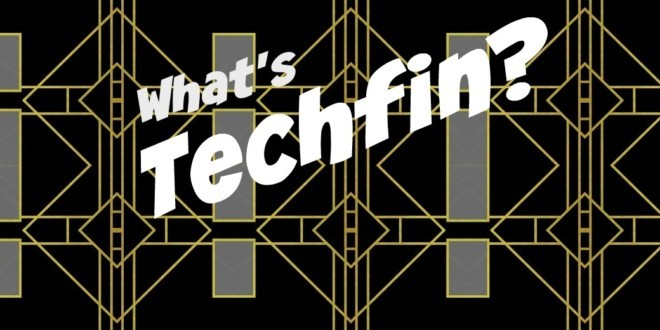 It doesn’t matter whether you call it fintech or “techfin” like Alibaba CEO Jack Ma. It’s disruptive to the financial services and payments industry. Our roundup today includes another collection of disruptors to keep an eye on. Alibaba continues its impressive growth guided by what CEO Jack Ma calls “techfin” – integrating financial services into busy mobile lifestyles.
It doesn’t matter whether you call it fintech or “techfin” like Alibaba CEO Jack Ma. It’s disruptive to the financial services and payments industry. Our roundup today includes another collection of disruptors to keep an eye on. Alibaba continues its impressive growth guided by what CEO Jack Ma calls “techfin” – integrating financial services into busy mobile lifestyles.
Amazon Cash is a new service that will make payment services available to the 75% or more Americans who rely on cash. 200 million Indian WhatsApp users may soon be able to make payments and money transfers through Facebook’s WhatsApp when it launches the payments service in India. Some mobile wallets in India have seen a 200% or more increase in transactions and e-commerce digital payments have risen 52% due to India’s demonetization policy.

Bank of Tokyo-Mitsubishi UFJ, Standard Chartered, Bank of America Merrill Lynch, Banco Santander, the Royal Bank of Scotland and the Canadian Imperial Bank of Commerce plan to launch cross-border blockchain payments in 2018. The Japanese government officially recognized bitcoin and other virtual currencies which could reach $9 billion in circulation by 2020.
Ripple will provide the technology platform for the new international cross-border blockchain payments initiative and is also introducing several new features. WeChat e-commerce and payment services will launch in the UK in May, followed by France and Germany and other EU countries in 2018. Deloitte says older baby boomers may be the next big market for mobile and digital payments. ANZ banking group will introduce voice biometrics which it says are more secure than fingerprint and other security techniques.
The largest payments company in the world most people have never heard of
 That’s a radical difference from the American internet giants like Amazon and eBay, who had major brick and mortar competitors also competing online, and began without any payments integration. Equally, the US giants were serving a developed market, where consumers had sophisticated online needs; Alibaba and Alipay were serving markets that were changing dynamically as Chinese citizens moved from rural, agricultural work to the rapidly expanding cities, where manufacturing offered a rapid uplift from poverty to riches.
That’s a radical difference from the American internet giants like Amazon and eBay, who had major brick and mortar competitors also competing online, and began without any payments integration. Equally, the US giants were serving a developed market, where consumers had sophisticated online needs; Alibaba and Alipay were serving markets that were changing dynamically as Chinese citizens moved from rural, agricultural work to the rapidly expanding cities, where manufacturing offered a rapid uplift from poverty to riches.
In creating this revolution of commerce in China, both manufacturing and online, Ant has emerged as the leader, and I’ve recently seen their European leader Rita Liu present at a few conferences.
Her first slide has the strapline: Ant Financial – empowering digital FinLife globally.
This is important as it’s not a payments app or a mobile wallet, but a complete social, commercial and financial systems in one. Imagine Facebook, Amazon and PayPal all integrated into one app. That’s what Ant has. theindianeconomist.com
With Amazon Cash, you can shop online without a bank card
 Internet shopping is great, but most of it is off-limits if you don’t have a credit or debit card. Unless you thrive on gift cards, you’ll have to settle for whatever is in physical shops. Today, though, Amazon is removing that barrier. It’s launching an Amazon Cash service that lets you apply cash toward your online account. It’s a bit convoluted — you have to visit a participating store, show a barcode (either on your phone or on paper) and fork over your money. There are no fees, however, and you can contribute between $15 to $500 at a time.
Internet shopping is great, but most of it is off-limits if you don’t have a credit or debit card. Unless you thrive on gift cards, you’ll have to settle for whatever is in physical shops. Today, though, Amazon is removing that barrier. It’s launching an Amazon Cash service that lets you apply cash toward your online account. It’s a bit convoluted — you have to visit a participating store, show a barcode (either on your phone or on paper) and fork over your money. There are no fees, however, and you can contribute between $15 to $500 at a time.
You can find your barcode both on the web and through Amazon’s mobile apps, and there are shortcuts (such as a home screen icon or Apple’s Wallet app) if you use it often.
The cash option is only available in the US and is limited to a handful of retailers (CVS and Speedway are among the examples). It’s safe to say that Amazon’s most direct competitors (Best Buy, for example) aren’t about to cooperate. Still, it’s a big deal for both Amazon and shoppers. As TechCrunch points out, more than a quarter of American consumers rely primarily or exclusively on cash. This lets Amazon reach a wider audience, and gives these cardless customers a chance to buy products that are either hard to get offline or more affordable than they are at retail. In other words, they won’t be cut off from one of the internet’s bigger advantages. Via engadget.com
WhatsApp may soon allow Indian users to make payments, money transfer through app
 Payment through apps is seemingly the future, something Paytm in India is talking about for a while, and now it looks like WhatsApp too wants to be a part of this future. The company is reportedly working on a payment system that will integrate with WhatsApp using UPI and allow Indian users to make payments through the chat app.
Payment through apps is seemingly the future, something Paytm in India is talking about for a while, and now it looks like WhatsApp too wants to be a part of this future. The company is reportedly working on a payment system that will integrate with WhatsApp using UPI and allow Indian users to make payments through the chat app.
WhatsApp has over 200 million users in India. According to a report by The Ken, the Facebook-owned company is working on a UPI integration and may launch the service in the next six months. With such massive popularity and enormous userbase, WhatsApp stands a fair chance to become a popular payment service in India, ahead of Paytm and others that are also trying to increase their user base.
Earlier WhatsApp had hinted that it might be working on special features for India users. “India is an important country for WhatsApp, and we’re understanding how we can contribute more to the vision of Digital India. We’re exploring how we might work with companies that share this vision and continuing to listen closely to feedback from our users,” a WhatsApp spokesperson had told TechCrunch earlier. Via indiatoday.intoday.in
Digital Payment Encompassing Cryptocurrency & Security Issues
 With ineffective cash in hand, market was ripe for widespread popularisation of mobile wallets. For starters, the e-commerce industry observed an increase of about 52 percent transactions taking place through digital payments providing a huge boost to the Digital India campaign. Digital payment usage have gone up by a significant margin recently. Certain mobile wallets are reporting an increase of up to 200 percent in application downloads, with an increase of up to 1500 percent in wallet recharges. The lack of cash influx has resulted in local vendors and hawkers opting mobile wallets. The numbers might seem impressive but would it be correct to assume demonetization was the sole factor for such popularisation of cashless transactions?
With ineffective cash in hand, market was ripe for widespread popularisation of mobile wallets. For starters, the e-commerce industry observed an increase of about 52 percent transactions taking place through digital payments providing a huge boost to the Digital India campaign. Digital payment usage have gone up by a significant margin recently. Certain mobile wallets are reporting an increase of up to 200 percent in application downloads, with an increase of up to 1500 percent in wallet recharges. The lack of cash influx has resulted in local vendors and hawkers opting mobile wallets. The numbers might seem impressive but would it be correct to assume demonetization was the sole factor for such popularisation of cashless transactions?
An argument in favour of mobile wallets is “penetration of cards being very low,” says Umeed Kothavala, CEO and Co-Founder, Extentia Information Technology. And rightly so, we had a plan for getting people to use bank accounts, but we didn’t have the provision of issuing similar number of cards. Add this to the easy availability of smartphones and you have the recipe for a successful wallet that you carry all the time. Smartphones are such an integral part of our lives that we didn’t even realise we were already doing many of our transactions via these pocket wonders. Want to pay your electricity bill, tap and pay. Running low on balance, just one click is all it takes. So, how do they do it?
Mobile wallet segment has now covers a very wide range of e-commerce, couponing/cashback, financial inclusion services and daily grocery shopping as well. The areas that are seeing an increase in the recent past are money transfer, mobile recharge, bill payments and utility applications. In Tier-I cities such as Delhi Mumbai, Bengaluru and Chennai the mobile wallets have seen a growth by 110 percent since 2014-15. However, what do you say about rural regions with lesser smartphone coverage? Via electronicsforu.com
MUFG, Standard Chartered Plan Blockchain Payments Launch for 2018
 A group of international banks is reportedly planning the launch of cross-border payment services backed by blockchain.
A group of international banks is reportedly planning the launch of cross-border payment services backed by blockchain.
According to Nikkei, the group – which includes Bank of Tokyo-Mitsubishi UFJ, Standard Chartered, Bank of America Merrill Lynch, Banco Santander, the Royal Bank of Scotland and the Canadian Imperial Bank of Commerce – is eyeing a 2018 launch, with a focus on both retail and commercial customers. Distributed ledger startup Ripple will provide the underlying technology, the paper said.
The past year has seen a number of banks worldwide test blockchain tech for cross-border payment purposes, including some who have trialed Ripple’s platform for this purpose. These include banks in India, Asia, Europe and the Middle East. Bank-to-bank payments have emerged as an appealing use case in the financial industry, even drawing the attention of some central banks. Via coindesk.com
Cash, Card, or Bitcoin: Japan Gives Virtual Currencies Official Recognition
 A new law giving bitcoin and other virtual currencies official recognition as a method of payment came into force in Japan on Saturday.
A new law giving bitcoin and other virtual currencies official recognition as a method of payment came into force in Japan on Saturday.
Virtual currencies are enjoying growing population in Japan, where domestic circulation of bitcoin, Ripple, Litecoin and others amounted to 185 billion yen ($1.67 billion) in the 2015 – 2016 fiscal year.
By 2020, the amount of bitcoin in circulation in Japan is expected to reach 1 trillion yen ($9 billion), the Nikkei Asian Review reports. Via sputniknews.com
Ripple Continues to Bring Internet of Value to Life: New Features Increase Transaction Throughput to Same Level as Visa
 When faced with the issues of today’s antiquated cross-border payment system, we often focus on the difficulties of scalability with banks struggling to handle the amount of transactions, causing it to take three to five days to complete. In a time where you can send a text message to someone across the world in an instant, days can seem like an eternity. Ripple’s hope is that instead of waiting days we can move money the way information is moved today, creating the Internet of Value. But as fintech companies continue to grow, concerns are mounting around scalability and performance. Those who cannot solve these issues by increasing their transaction throughput (measured by transactions per second) to the level of companies like Visa and American Express will be left behind.
When faced with the issues of today’s antiquated cross-border payment system, we often focus on the difficulties of scalability with banks struggling to handle the amount of transactions, causing it to take three to five days to complete. In a time where you can send a text message to someone across the world in an instant, days can seem like an eternity. Ripple’s hope is that instead of waiting days we can move money the way information is moved today, creating the Internet of Value. But as fintech companies continue to grow, concerns are mounting around scalability and performance. Those who cannot solve these issues by increasing their transaction throughput (measured by transactions per second) to the level of companies like Visa and American Express will be left behind.
We’re excited to be introducing several new features that improve the Ripple Consensus Ledger (RCL) and Interledger Protocol (ILP), by bringing the Internet of Value to life. ILP can now communicate with RCL to meet the needs of digital assets, traditional payments, and the traditional financial world, creating a network that can interconnect all the world’s value on ledgers. Ripple is now the best suited network to accomplish this. Via ripple.com
WeChat e-commerce and payments coming to the UK and Europe
 The biggest social media platform in China, WeChat, has revealed it will be coming to the UK and other parts of Europe in the not too distant future. They will be opening up their e-commerce platform and payments services to European merchants to sell to shoppers in China.
The biggest social media platform in China, WeChat, has revealed it will be coming to the UK and other parts of Europe in the not too distant future. They will be opening up their e-commerce platform and payments services to European merchants to sell to shoppers in China.
They will begin with the UK with France and Germany to follow. WeChat currently operates in Europe only through an office in Milan. WeChat is owned by Tencent. The idea is to open up WeChat to European retail brands and hopefully remove some of the friction and bureaucracy encountered when trying to start operations in China in a more traditional way.
Andrea Ghizzoni, European director of Tencent said: “We are expanding to the UK next month with a plan to open up direct operations in other European countries next year.”
“Almost 95 per cent of global luxury brands are on WeChat now — in the UK, there is Burberry and Mulberry, in Italy, Valentino, Zegna, Prada, all the big brands. Two years ago, the number was 50 per cent and last year 75 per cent, so the growth has picked up recently.” Via tamebay.com
Banking Fails to Serve Older ‘Digital Native’ Consumers
 Millennials may be the most likely to embrace the ‘next best thing’ in mobile banking, but tectonic shifts in mobile banking adoption rates indicate that Boomers are the segment with the most potential for growth and profits.
Millennials may be the most likely to embrace the ‘next best thing’ in mobile banking, but tectonic shifts in mobile banking adoption rates indicate that Boomers are the segment with the most potential for growth and profits.
Smartphone ownership growth has slowed down, with only a 7% increase to 77% ownership in 2016. This is the result of market saturation, even in previously underrepresented segments (55 year olds). Despite this mobile phone ownership growth moderation, tablet penetration increased to 59% (up 8% in last year), smart watch penetration tripled over the past three years (from 4% to 12%), and fitness bands reached 17% market penetration, according to Deloitte.
While the ownership of wearables is still modest compared to smartphones, the growth does indicate a willingness for consumers to embrace an expanded communication network that could provide value to financial firms. Testing of wearable integration continues by many banks, with use cases often depending on payments integration as well as many insurtech uses. Via thefinancialbrand.com
Voice biometrics take ANZ higher for mobile payments
 Australia and New Zealand-based banking group, ANZ, has announced it will be the first Australian bank to introduce voice biometrics on mobile devices to allow higher value transactions.
Australia and New Zealand-based banking group, ANZ, has announced it will be the first Australian bank to introduce voice biometrics on mobile devices to allow higher value transactions.
From the middle of this year, customers transferring more than $1,000 through ANZ’s mobile apps will be able to use their voice to automatically authorise high value payments. Previously customers needed to use internet banking or visit a branch to complete transactions more than $1,000.
Peter Dalton, MD customer experience and digital channels, says a person’s voice has “five to ten times as many security points than other methods such as fingerprints” and the technology is “now so advanced that it can tell the difference between identical twins or even a voice recording”. Via bankingtech.com
Techfin growing
Want more news about techfin, fintech and other technologies disrupting the financial services and payments industries? PaymentsNEXT has you covered. Subscribe at the top of this page to get regular Monday-Wednesday-Friday news updates in your inbox.

